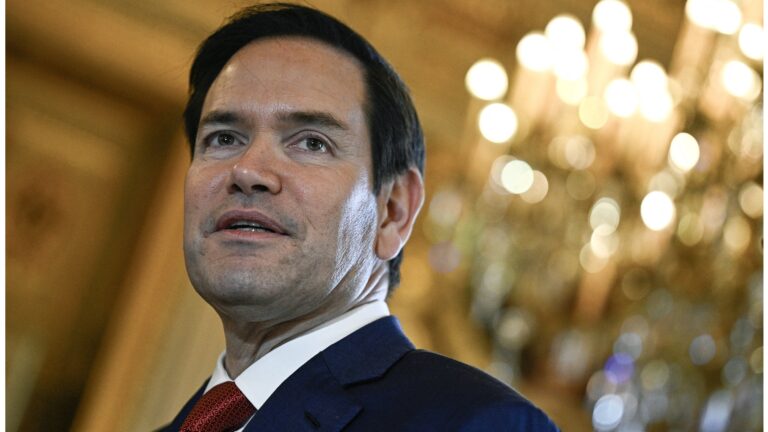Within half a year in the European Union three candidates were disqualified from presidential races: Călin Georgescu and Diana Șoșoacă were excluded from the presidential race in Romania, while Marine Le Pen was barred from running for office by a French court. In addition, the right-wing French politician has also been given a suspended prison sentence (two years) plus two years in home detention with an ankle bracelet and has also been fined for 100 000 EUR. Alongside Le Pen, eight former members of the European Parliament and 12 assistants from the National Rally were also found guilty.
On Monday Marine Le Pen was found guilty of embezzling European Parliament funds and therefore, was barred from standing in elections for the next five years. According to the charges, between 2004–2016 Le Pen mishandled European Parliament funds, from which she paid her parliamentary assistants who worked on national political issues, rather than on European Parliament matters. Under the EP’s rules, parliamentary assistants are employed by the EP and therefore, barred from working on national party matters on behalf of politicians. On the other hand, as noted by Connor Allen, a former Parliamentary Assistant in the European Parliament quoted by the Spectator: ‘Every single political group, every single national delegation, has violated the same rule that Ms. Le Pen did—the employment of staff to work on non-EP related affairs,’ suggesting that the fact Le Pen’s case was the only one investigated is politically motivated. Importantly, Le Pen was not found guilty—neither was she accused of—unlawfully enriching herself.
Le Pen left the courtroom before the full judgement was read out and later told TF1 that she had done so because she had realized that the court was ‘handing down a political decision’. Le Pen has appealed the verdict; the ban, however, will not be suspended unless it is overturned by the court of appeal. According to recent polls, Le Pen is the French electorate’s favourite for the 2027 presidential election, steadily supported by 35 per cent of the electorate. Reacting to the court’s decision, the National Rally (RN) leader Jordan Bardella said: ‘It’s not just Marine Le Pen who is unfairly condemned: it’s French democracy that is being executed.’ Bardella also called for a rally this weekend to protest against the ruling, and also initiated a petition to demonstrate the electorate’s support for Le Pen.
Orbán Viktor on X (formerly Twitter): “Je suis Marine! @MLP_officiel / X”
Je suis Marine! @MLP_officiel
Many accused the court’s ruling of depriving the electorate the chance of deciding who is fit to hold political office in France. Rather than disqualifying Le Pen from the presidential race, it could have been decided to merely fine the party for the misappropriated funds. The ban on running for office is widely seen as a disproportionate intervention into the political affairs of the country from the side of the judiciary.
After Monday’s news, on Tuesday evening some hope was offered for the supporters of Le Pen’s cause. The court of appeal said it will review Le Pen’s case and issue a decision by summer next year, that is, about a year before the 2027 presidential election that is expected to take place in April.
Some believe the use of the is judiciary is becoming increasingly frequent to address political issues. Bans on Călin Georgescu and Diana Șoșoacă were imposed by the Romanian constitutional court in early 2025 and late 2024 respectively, while during the US Presidential campaign Donald Trump was also found guilty on all felony counts by a jury in Manhattan. After having experienced judicial moves that were considered by many of having political motivations, it is not surprising that the Trump administration spoke up against the bans in Romania and supported Le Pen in France.
‘The ban on running for office is widely seen as a disproportionate intervention into the political affairs of the country’
Similar to Marine Le Pen, her father, Jean-Marie Le Pen, a man of controversies, also faced difficulties exercising his political rights due to judicial decisions. In 1998 Jean-Marie Le Pen was convicted of assaulting a French socialist candidate during the 1997 campaign and was sentenced to two years ineligibility for public office. As a result, the then President of the European Parliament Nicole Fontaine in October 2000 decided not to allow Jean-Marie Le Pen to take up his seat in the European Parliament. In 2001, however, the ban was lifted by an interim measure, and so Jean-Marie Le Pen could join the chambers of the EP. The interim measure was eventually overturn in April 2003 and the French politician was again deprived of his mandate. Known for his scandals, frequently accused of antisemitism (which ultimately led to his expulsion from his party), Jean-Marie Le Pen’s ambitions were not offset by the difficulties he experienced during the 1999–2004 EP mandate: he carried on with his political activity and served as an MEP until 2019. Jean-Marie Le Pen died in January this year at the age of 96.
Former French President Nicolas Sarkozy is also currently awaiting sentencing, with prosecutors requesting a seven-year prison sentence for the former President. Sarkozy served as President of France between 2007–2012, and is accused of having benefited (during the 2007 presidential race) from illegal campaign financing—about 50 million EUR—from former Libyan dictator Muammar Gaddafi. In 2021 Sarkozy was already found guilty of corruption in a separate case, and was obliged to wear a GPS-tracking ankle bracelet for a year.
Related articles:








